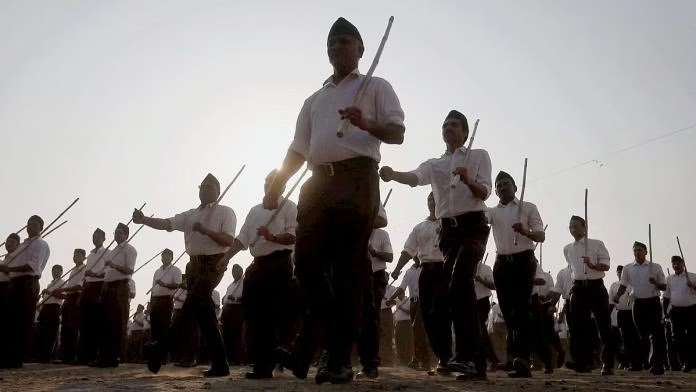Unwarranted influences

The government’s decision to revoke the ban on civil servants joining or participating in the activities of the Rashtriya Swayamsevak Sangh (RSS) has stirred significant concern among former civil servants. The Constitutional Conduct Group, comprising 115 former senior officials, has expressed deep unease over the move, apprehending it could erode the secular foundation of Indian democracy. As a matter of fact, their apprehensions are well-founded. For some reason or the other, the integrity of institutions holding the country intact—from enforcement agencies and election commission to media and police—has come into question. The apparent weakening of these institutions might be a deliberate ploy to institutionalise an inadequately checked authority at the centre.
Back in the first half of the 19th century when The Crown was contemplating centralisation of power in British India by eventually wresting complete control from the East India Company, among all the direct measures, it tweaked the civil services rules in a manner that would suit its interest. The bottom-line is that civil servants, even back then, were among the most solid impediments to the nefarious designs of The Crown. And today, civil servants collectively act as a strong foundation for fair and representative governance. These pillars will have to be protected from the degrading effect of political and ideological influences to ensure that civil servants keep functioning with the degree of professionalism expected of them.
The Constitutional Conduct Group has been very clear in its assertion, “we feel a deep disquiet about this government order that allows government servants, who are tasked with defending secular democracy and minority rights, to openly declare their allegiance to an organisation that is ideologically opposed to both of these.” It has, in fact, gone on to call for withdrawal of the “egregious order.” The RSS, widely perceived as the ideological backbone of the ruling Bharatiya Janata Party (BJP), advocates for a Hindu Rashtra, a vision that contradicts the pluralist and secular principles enshrined in the Indian Constitution. By allowing civil servants—those tasked with defending the Constitution and ensuring the rights of all citizens—to participate in RSS activities, the government risks compromising the impartiality and fairness in their roles. The highly superficial claim of RSS being a “cultural” and not “political” organisation is far from convincing, as it has long been involved in political activities, with its members actively campaigning for the BJP during elections. It is hard to deny the RSS-BJP link. Both historically and in the present context, the role of RSS in politics has been a hotbed of controversy.
The steel frame of India—as Sardar Vallabh Bhai Patel called the civil services—needs to be kept intact at all costs, insulating it from political and ideological influences. To sum up, the government's decision to lift the ban on civil servants participating in RSS activities is a dangerous precedent. It threatens to degrade the secular and pluralist principles that are at the core of the Indian Constitution. The Constitutional Conduct Group's call for the immediate withdrawal of this order should be considered by the government. While the governments may come and go with their ideologies, civil services will have to stand steadfast with utmost impartiality and professionalism, if India is to climb up the development path.



